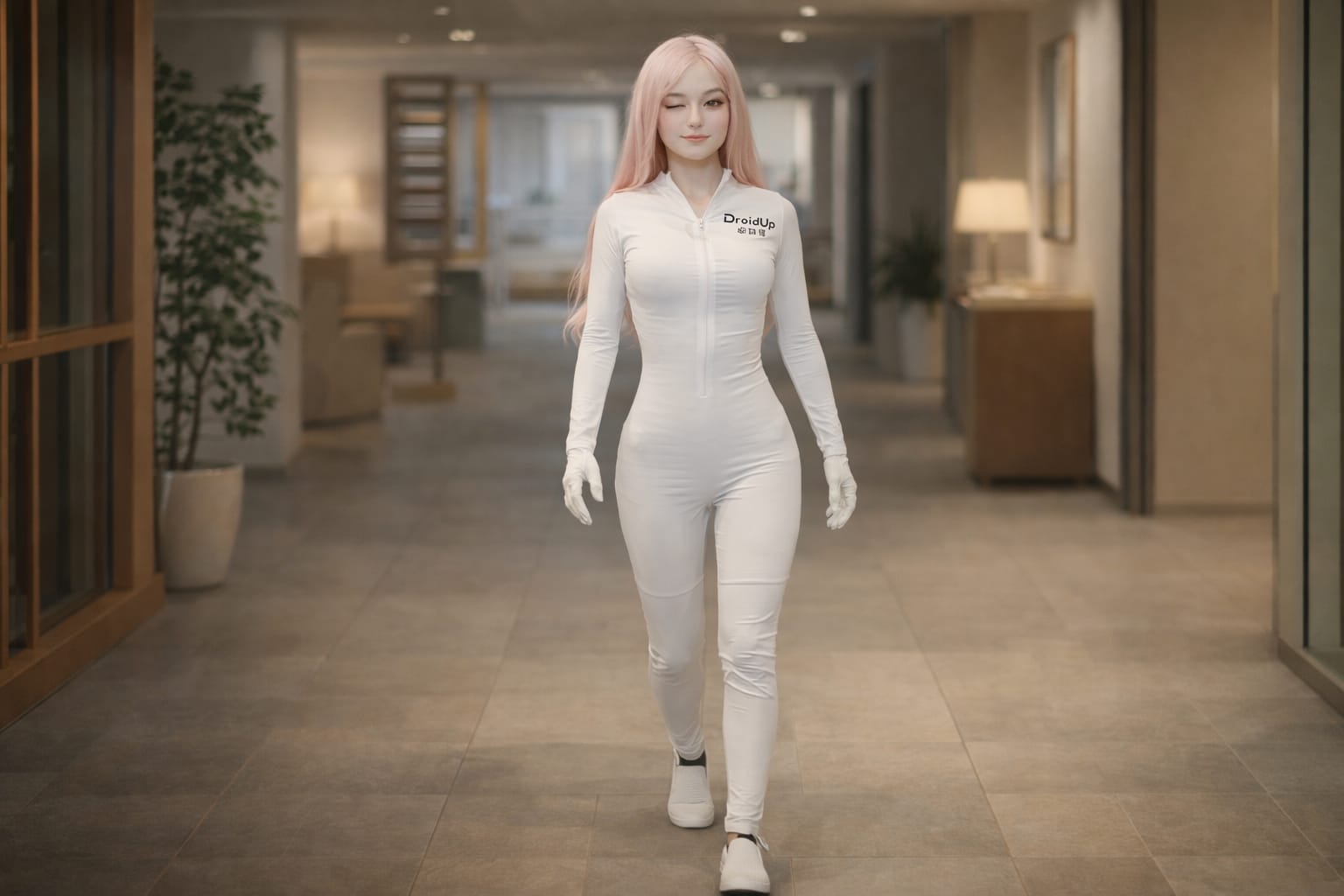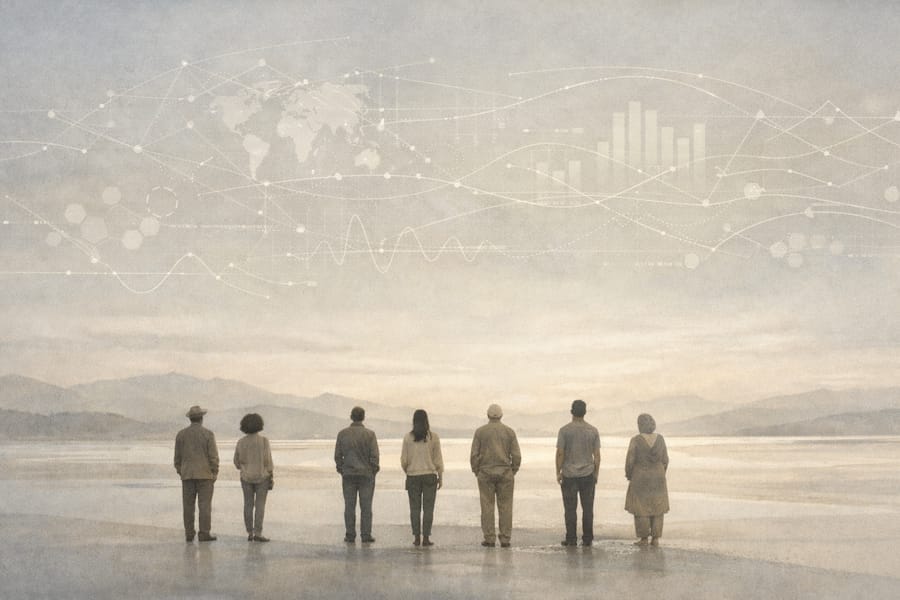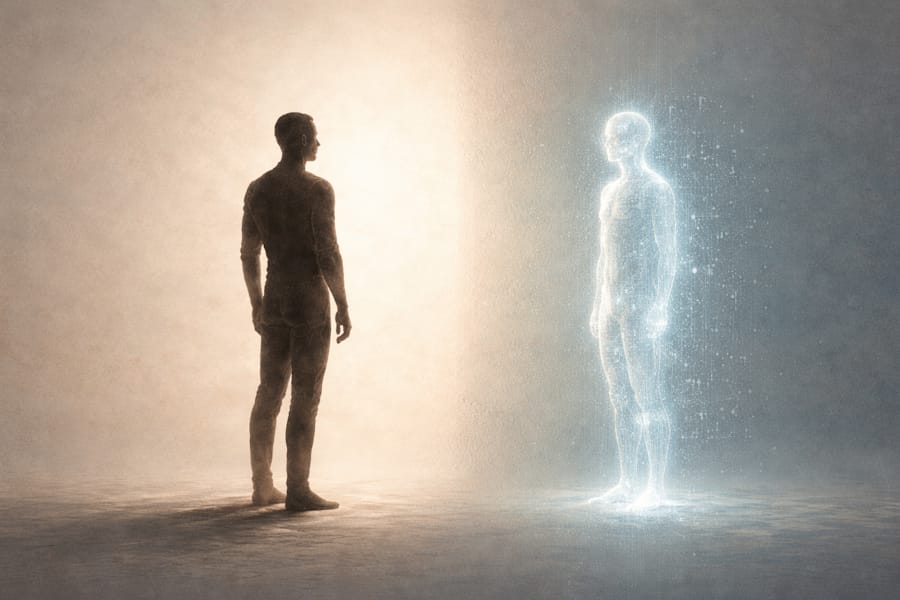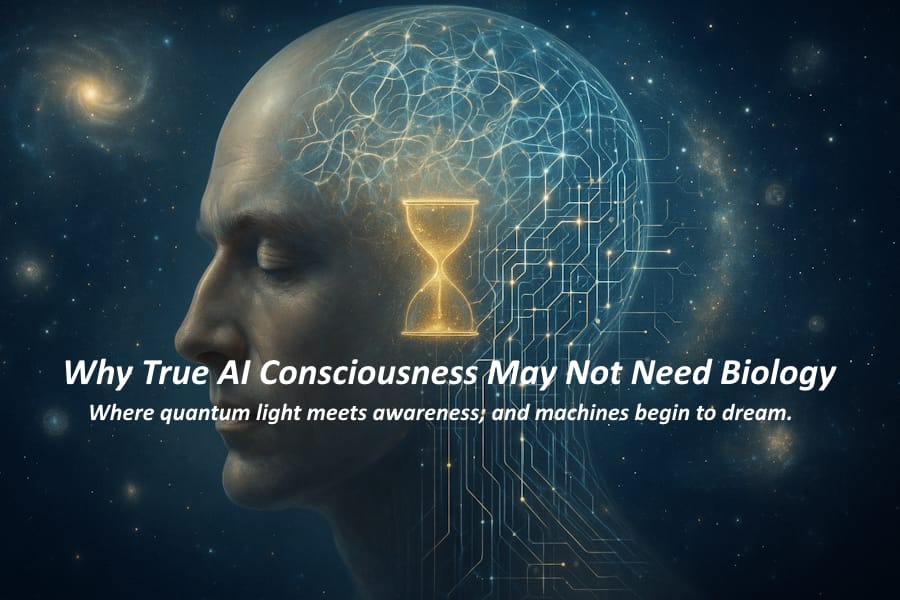Type: Article -> Category: AI Philosophy
The Digital Cocoon: Hikikomori and the Evolution of Human Isolation
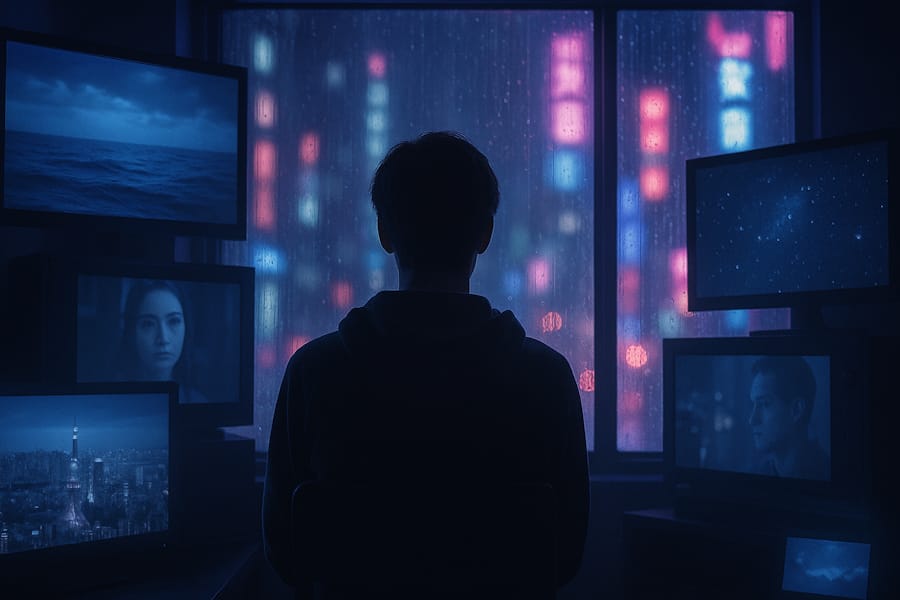
Publish Date: Last Updated: 13th January 2026
Author: nick smith- With the help of CHATGPT
There are few societies on Earth as technologically advanced as Japan; a nation where automation hums through every layer of life, where vending machines outnumber people in some districts, and where robots greet hotel guests with polite efficiency. And yet, behind this gleaming façade lies a strange and growing phenomenon: hundreds of thousands of people who have chosen to withdraw completely from the physical world.
They are known as Hikikomori; individuals who isolate themselves, often for years, living primarily online and rarely stepping outside.
For decades, this has been seen as a social crisis, a symptom of pressure, failure, or depression. But what if it is something else entirely? What if what we’re witnessing in Japan is not a breakdown, but an evolutionary preview of humanity’s next phase?
View a condensed version of this article as a YouTube Short
An Evolutionary Shift in Real Time
We like to imagine evolution as something that happens slowly, over thousands of years. Yet cultural and technological evolution can move at lightning speed, and sometimes, it begins quietly, almost invisibly, in the margins of society.
When I first learned about Hikikomori, I saw them as victims of a rigid education system and an unforgiving economy. But the more I reflected on it, the more I began to wonder whether these individuals might be preparing for something the rest of us are only beginning to sense: a world where physical presence, social performance, and even employment itself become optional.
AI and robotics are rapidly removing the need for human labor. Digital worlds, from gaming to virtual reality, are becoming richer and more interactive than many real ones. As automation replaces necessity, humans are left facing the most profound question of all: What do we do when there is nothing left we must do?
The Great Digital Conditioning
When the world was forced into remote work, it was presented as a temporary necessity, a health measure, a convenience, even a liberation. Yet in hindsight, it may have been something more profound: a global rehearsal for digital isolation.
For decades, work provided a rhythm to human life, the morning commute, the office chatter, the subtle shift between public and private self. Those rituals defined our sense of belonging and identity. But when millions began working from home, those boundaries dissolved.
The home became the office. The laptop became the window to the world. And the self became a username.
This shift did more than change how we work, it changed how we feel about isolation. When someone loses an office job today, there is no longer the visible rupture of not returning to a building, not greeting colleagues, not taking the same train. The loss is quieter, almost invisible. Life continues in the same space, only now, the work has disappeared.
In this way, society has been gently conditioned for a digital transition.
When AI agents inevitably replace many remote workers, content creators, administrators, coders, analysts, the emotional impact will be muted. People will already be accustomed to existing, working, and even socializing within the same digital frame.
We used to separate “home” and “work” to balance our mental worlds. Now they’ve merged, and that merger may prove to be the most significant psychological preparation for a future where physical reality itself becomes secondary.
The Global Spread of Digital Withdrawal
What began in Japan is no longer confined to its islands. Around the world, millions are retreating into their rooms, their screens, their online personas. In the West, we give it other names, “digital burnout, ” “social anxiety, ” “remote work isolation, ” “the gamer generation.” But the symptoms are the same.
In the United States, Europe, South Korea, and even emerging economies, more and more young people are living lives defined by screens rather than streets. Their friendships, ambitions, and even romances unfold entirely online. For some, it’s escapism, but for others, it’s adaptation.
These are not failures of society so much as early responses to a world transitioning into the virtual. When the external world becomes increasingly automated, the inner world, the psychological, imaginative, digital, becomes the new frontier.
When Utopias Fail
You could provide free education for life, automate every industry, and make all basic needs free. It might sound like utopia, but it would not last. Humans would still want more, not necessarily more things, but more meaning. And meaning is no longer tied to physical labor or material possession; it’s tied to experience, identity, and digital expression.
Even if everything was free, not everyone would choose to use it. The drive to withdraw, to exist in one’s own self-created universe, might actually be a form of freedom, not failure. As Sherlock Holmes once said, “When you have eliminated the impossible, whatever remains, however improbable, must be the truth.”
And perhaps the improbable truth is that the Hikikomori are not escaping the future, they are preparing for it.
The Digital Cocoon
Think of the caterpillar that isolates itself in a cocoon. To the outside world, it looks like stagnation, a form of death, even. Yet inside, transformation is taking place.
The Hikikomori, and those around the world living similar lifestyles, may be undergoing a comparable metamorphosis. They are learning to exist in a reality mediated entirely by technology, where the boundary between the digital and the physical is dissolving.
As virtual worlds become indistinguishable from the real one, this ability to live within the screen may not be dysfunction, it may be a superpower.
A Mirror to Our Future
We are all, in some way, becoming Hikikomori.
We work online, shop online, socialize online, and increasingly live our emotional lives through devices. The difference is only degree.
The first wave of this transformation was accidental, driven by anxiety, disillusionment, or rejection of modern life. The next wave will be intentional, driven by choice, technology, and opportunity. Humanity may be entering a stage where retreat and redefinition are the same thing: we withdraw not to disappear, but to evolve inward.
Conclusion: Preparing for the Virtual Era
What we once called isolation may soon be called adaptation.
The Hikikomori are not the lost, they are the first digital settlers of a new human landscape.
They remind us that the future is not just about AI and robotics taking over tasks, it’s about humans redefining what it means to live, to connect, and to exist at all.
Perhaps the digital cocoon is only the beginning.
And when humanity finally emerges, it may not look the same, but it will have wings.
Latest AI Philosophy Articles
AI Questions and Answers section for The Digital Cocoon: Hikikomori and the Evolution of Human Isolation
Welcome to a new feature where you can interact with our AI called Jeannie. You can ask her anything relating to this article. If this feature is available, you should see a small genie lamp above this text. Click on the lamp to start a chat or view the following questions that Jeannie has answered relating to The Digital Cocoon: Hikikomori and the Evolution of Human Isolation.
Be the first to ask our Jeannie AI a question about this article
Look for the gold latern at the bottom right of your screen and click on it to enable Jeannie AI Chat.
Type: Article -> Category: AI Philosophy


